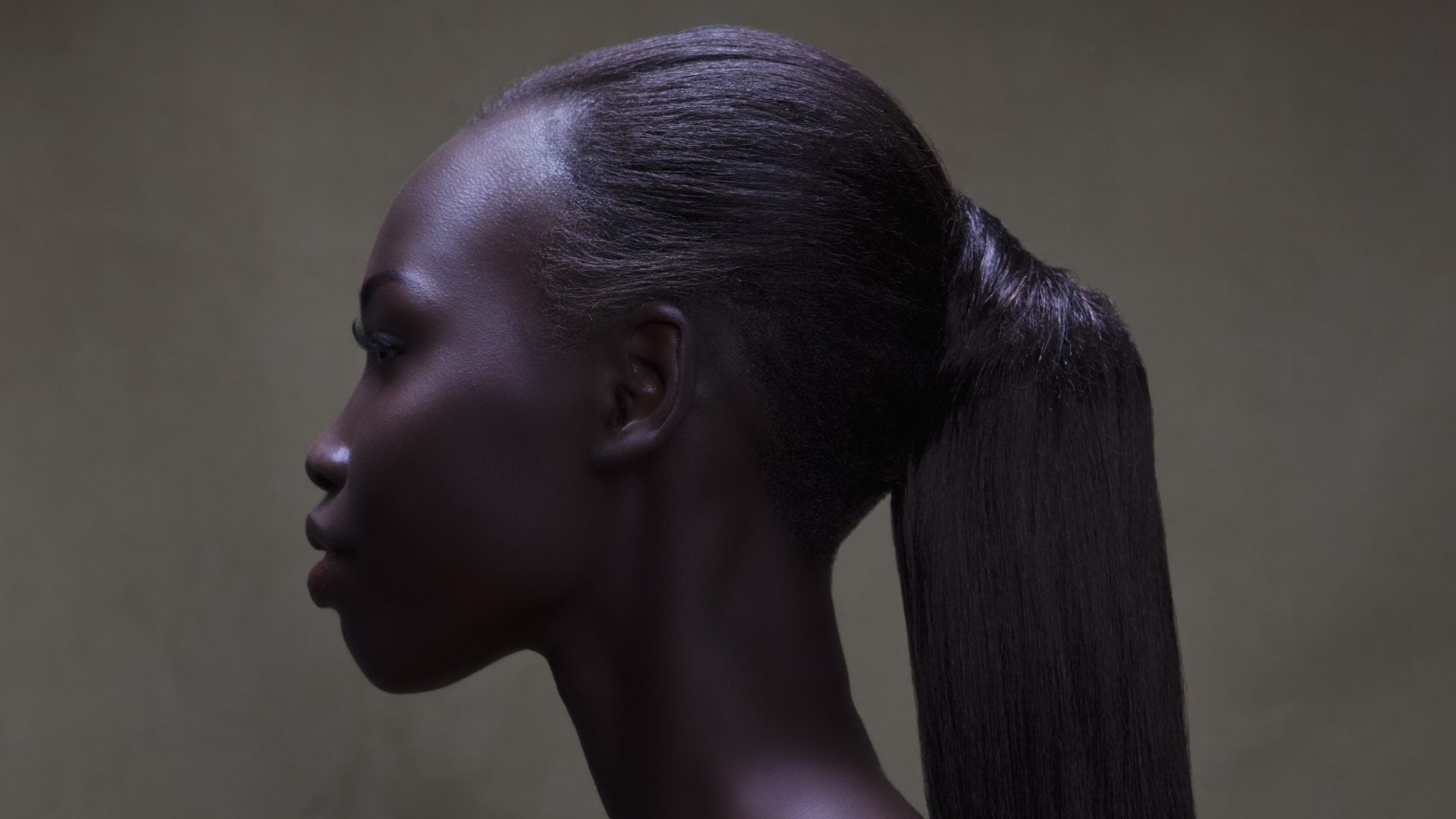
In 2022, the NIH published a study stating the links between uterine cancer and hair relaxer use. Over 33,000 women participated in the Sister Study with 378 diagnosed with cancer over the course of 11 years. Apart from the study, a hairstylist who had been applying relaxers to her clients’ hair for the past 30 years was also diagnosed. “My first salon opened in 1994,” hairstylist and salon owner Michelle tells ESSENCE. Since then, “I relaxed the hair of about 10 clients every week.”
However, her harmful relationship with relaxers didn’t start there. At the age of 15, Michelle’s mother applied the Dark and Lovely relaxer to her hair for the first time. “I was in high school and I wanted my hair to be pretty and flowy and straight,” Michelle– who chemically processed her hair every six to eight weeks– says. With most hair relaxer ads referring to textured hair as “difficult to manage” and “time-consuming,” cosmetic companies ask Black women to assimilate, marketing their “soft and silky, and so easy to comb” results as the solution to natural hair.
“Relaxers are popular in the Black community because many people want hair that’s easy to maintain. They want soft, straight hair,” she says. “People want to fit in, they want to be accepted. Some people think they need relaxed hair to get those good jobs.” Profiting off of texturism, companies including L’Oreal, Just For Me, and Motions achieve these results by using toxic ingredients such as parabens, bisphenol A, metals, and formaldehyde. Although, studies have not yet identified the exact cancer-causing toxins.
Unknown to Michelle at the time, she, along with over 7,500 other cases, would end up suing some of the biggest cosmetic companies in the world. “Michelle is one of the women who has had extensive exposure to these chemical hair relaxers and unfortunately was diagnosed with endometrial cancer [in September 2022],” her lawyer, Vanessa H. Gross of Wagstaff & Cartmell tells ESSENCE. Filing her lawsuit in 2023, Gross says the law firm also represents numerous other women who, after years of relaxer use, have been diagnosed with ovarian, uterine, or endometrial cancer.
“I felt traumatized, emotional, scared, and weak,” Michelle says, after finding out about her diagnosis. “I was losing an insane amount of sleep. I cried all day. I couldn’t believe it.” While she works two jobs just to afford chemotherapy for a potentially fatal cancer, L’Oreal has racked up almost $300 billion dollars as the 39th most valuable company in the world, at the expense of their most loyal customers. “It is unfortunate that the companies who manufactured and sold these products did not conduct sufficient analyses of the safety of their products before selling their products to women like Michelle,” Gross says.
Although over 7,500 cases have been filed, “there are many more women who have regularly used these products and have been diagnosed with ovarian, uterine, or endometrial cancer, but have not yet filed a lawsuit,” Gross says, in addition to women who have yet to be diagnosed. Now, the ones who have come forward are awaiting trial. “It is our hope that trials will begin by late 2025 or early 2026.”





